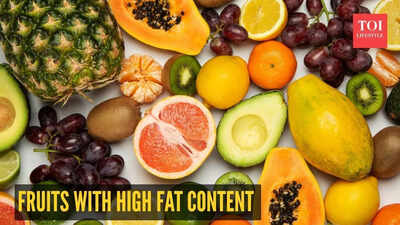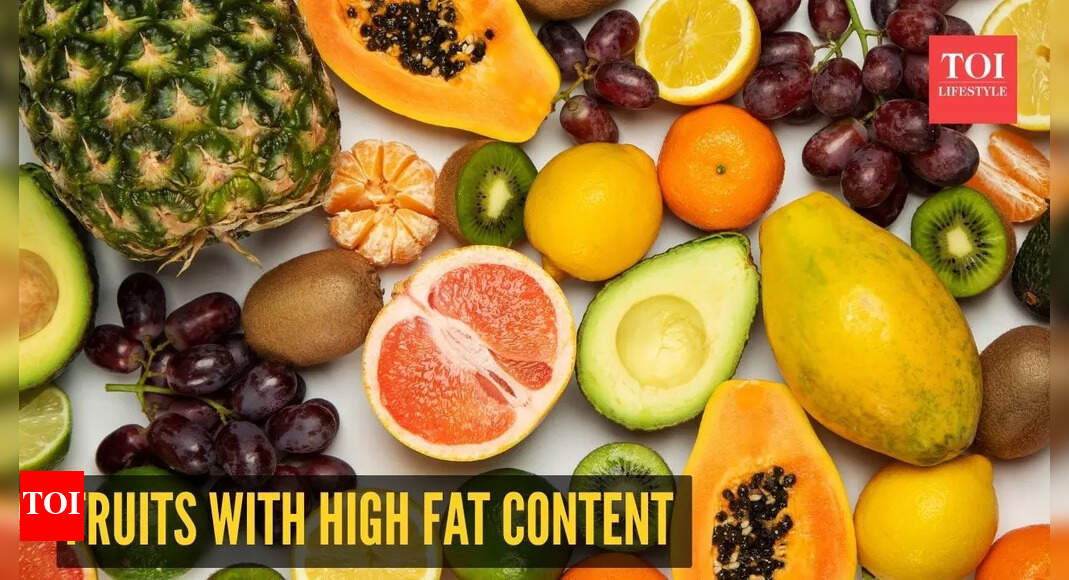 We’ve long been taught to see fruit as nature’s candy, colorful, refreshing, and virtually fat-free. In the collective imagination, fruit belongs on one side of the nutritional spectrum, and fat on the other. One is pure and cleansing; the other indulgent and heavy. But that binary has always been a little misleading. Some fruits, quietly and without apology, blur that line. They’re rich, creamy, and dense in ways that challenge our assumptions about what “healthy” should feel like.The truth is, not all fat is created equal, and not all fruits are as light as we think. Patricia Bannan, a registered dietitian based in Los Angeles, in an interview with TODAY.com explained that there are some fruits that don’t fit neatly into a low-calorie narrative, but they do tell a deeper story about nourishment. Here are 5 such fruits that you should be aware of
We’ve long been taught to see fruit as nature’s candy, colorful, refreshing, and virtually fat-free. In the collective imagination, fruit belongs on one side of the nutritional spectrum, and fat on the other. One is pure and cleansing; the other indulgent and heavy. But that binary has always been a little misleading. Some fruits, quietly and without apology, blur that line. They’re rich, creamy, and dense in ways that challenge our assumptions about what “healthy” should feel like.The truth is, not all fat is created equal, and not all fruits are as light as we think. Patricia Bannan, a registered dietitian based in Los Angeles, in an interview with TODAY.com explained that there are some fruits that don’t fit neatly into a low-calorie narrative, but they do tell a deeper story about nourishment. Here are 5 such fruits that you should be aware of
Effective Diet to Combat Stubborn Belly Fat
Durian
Known across Southeast Asia as the “king of fruits,” durian is as divisive as it is distinctive. Beneath its thorny shell lies custard-soft flesh that’s both sweet and bitter, dense with natural fats, about 13 grams per cup.
Avocado
Avocados are the poster fruit for healthy fats, and with good reason. About one-third of a medium avocado provides 7 grams of fat, most of it monounsaturated. “These fats give avocados their creamy texture and satisfying quality, making them stand apart nutritionally and offering benefits beyond what we typically expect from fruit,” says Bannan.
Olives
They might star in martinis and Mediterranean dishes, but olives are, biologically speaking, fruit. Ten green olives contain around 6 grams of fat, mostly the monounsaturated kind that’s been linked with reduced cardiovascular risk. They’re also the source of olive oil, a cornerstone of the Mediterranean diet.
Coconut
Crack open a coconut, and you’ll find a fruit that’s nearly 65% fat by dry weight, mostly in the form of saturated fats called medium-chain triglycerides (MCTs). These fats are metabolized faster than the long-chain fats found in meat or butter, but that doesn’t make them limitless.
Açaí Berry
Smoothie-bowl fame aside, açaí berries are naturally fatty. Half a cup of unsweetened puree contains roughly 5 grams of fat, mostly heart-friendly omega-type fats.
Sapodilla
Soft as a ripe pear and tasting faintly of brown sugar, sapodilla is one of the lesser-known tropical fruits that actually carries a small but notable amount of fat, about 2.7 grams per cup.
Carissa (Natal Plum)
Bright red and cranberry-tart, the carissa, also known as natal plum, contains roughly 2 grams of fat per cup. While it’s often turned into jams or jellies, the fresh fruit offers antioxidants and small doses of healthy fats.Note: The information provided in this article is for educational purposes only and is not intended as medical advice. Always consult with a qualified healthcare professional before starting any new medication or treatment and before changing your diet or supplement regimen.

